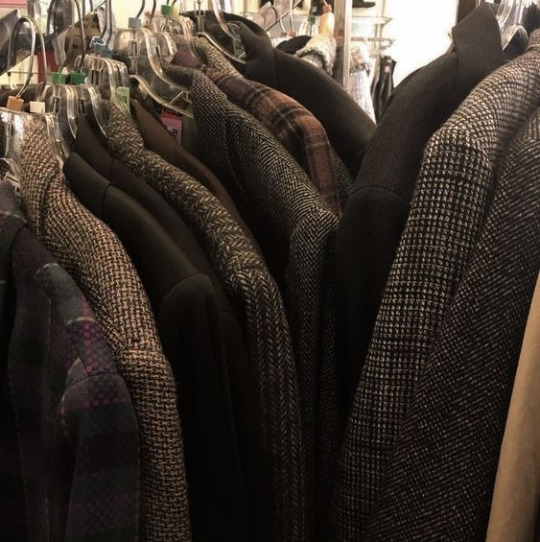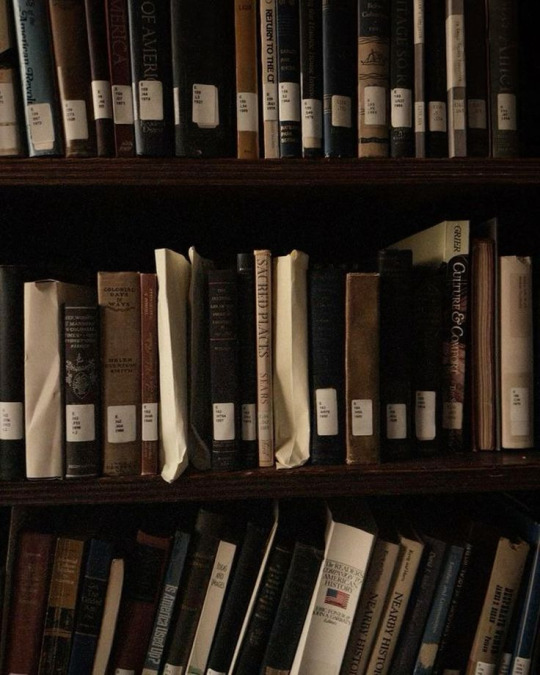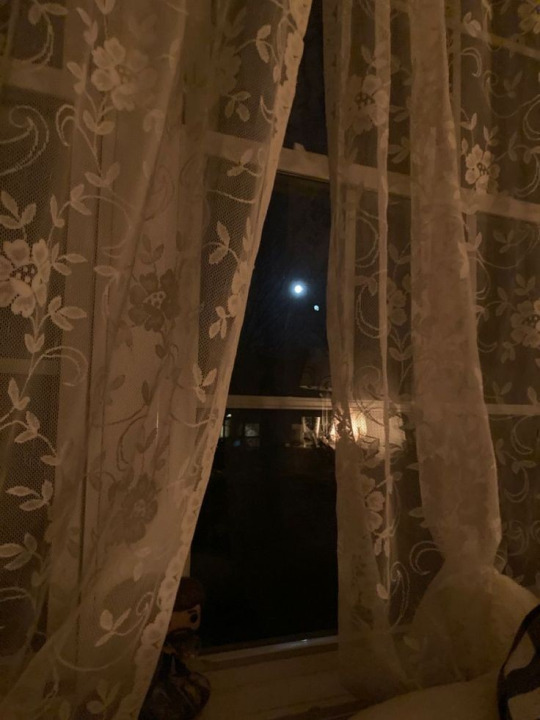Text
LEARN JAPANESE WITHドラマ

みんなこんにちは! i was watching Tokyo Swindlers 「地面師たち」 and i decided to make a vocabulary list and share it with y'all! i hope you guys will find it helpful! i'm only on episode one so i'll post more vocabulary lists as i'm watching! as always, feel free to correct me any time! 頑張って!
ᯓ★TOKYO SWINDLERS S1E1 VOCABULARY LIST:
経つ ➸ たつ ➸ to pass (of time), to elapse
時のたつのは早いものだ。Time flies.
もう ➸ already, by now, yet, soon, further, again, jeez
もう~、なにやってんだよ。Jeez, what are you up to?
彼はもう帰宅しました。He has already gone home.
仕事 ➸ しごと ➸ work, job, labor, occupation, employment
あなたは仕事が気に入っていると思います。I believe you like your job.
言う ➸ いう ➸ to say, to utter, to call, to name, to declare
うそを言うな。Don't tell lies!
探す ➸ さがす ➸ to search for, to look for, to hunt for, to seek
仕事を探してるんだ。I'm looking for a job.
待つ ➸ まつ ➸ to wait, to look forward to, to anticipate
もう彼のことを待てない。I can't wait for him any longer.
契約 ➸ けいやく ➸ contract, compact, agreement
それでは契約と違う。That's against the contract.
てめえ ➸ you (derogatory)
てめぇら、死にやがれ! Fuck you all to hell!
野郎 ➸ やろう ➸ guy, fellow, bastard, asshole
あの野郎は、いただきだ。I am going to get that sucker.
先に ➸ さきに ➸ previously, before, earlier, first, ahead (of)
私が先にそこへ着くよ。 I'll get there before you will.
打つ ➸ うつ ➸ to hit, to strike, to knock, to beat, to punch, to slap, to type, to send, to transmit
雨が窓を打った。The rain whipped against the window.
田中さんはタイプが打てるんでしょう。Ms. Tanaka can type, can't she?
同じ ➸ おなじ ➸ same, identical, equal, anyway, in either case
みんな同じなのよ。They are all the same.
疑い ➸ うたがい ➸ doubt, uncertainty, suspicion, distrust
疑いの余地はない。There is no room for doubt.
無残 ➸ むざん ➸ cruel, merciless, cold-blooded, miserable
彼の希望は無残に砕かれた。His hopes were shattered.
姿 ➸ すがた ➸ figure, form, shape, appearance, dress, state
自分の姿を鏡にうつして見なさい。Look at yourself in the mirror.
一瞬 ➸ いっしゅん ➸ instant, moment, for an instant
それは私にとってはらはらする一瞬だった。It was a nervous moment for me.
#日本語#japanese#japanese langblr#languages#japanese vocabulary#langblr#studyblr#japanese vocab#tokyo swindlers#gokcen.jp
25 notes
·
View notes
Text
People always ask me how I learn languages! Well, I sit down and study. Sometimes I stand up and study. And no, there are no shortcuts. You actually have to engage with a language for hours to learn it. Even people who learn how to speak languages by speaking have to go up to other people and talk at length. Also, knowing how to speak 20 phrases you've memorized is not speaking a language. That's what people selling phrasebooks and premium study plans on youtube wants you to believe. Sorry. It actually takes years for you to become good at a target language. You'll just have to find a way to make those years bearable. Sorry again.
2K notes
·
View notes
Note
i keep seeing « si si tqte » but what does it mean ? thank you !
ohhh that’s a great one!! tqt or tkt is an abbreviation used in text messages for “t’inquiète” or “don’t worry” in english!!
And “si” is “yes” but in a particular situation.
You use “si” when you want to respond to someone asking whether you’re going to do a certain action for example, and thinks you won’t do it.
Tu vas pas le faire?
Si si je vais le faire tqt!
You’re not gonna do it?
Yeah yeah I’m gonna do it don’t worry!!
75 notes
·
View notes
Text
How the French react to gossip *gasp*
Mais non??? - No way
Mon dieu - My god
Oh mon dieu - Oh my god
Sérieux?? - Seriously??
Mais wesh - No way (that’s so informal lol use it with besties)
Incroyable - Incredible
J’ai pas les mots là - I have no words
Choqué(e) - Shooketh
Oh la la - speaks for itself
C’est dingue - It’s crazy
C’est fou - It’s crazy
939 notes
·
View notes
Text









I'm a traveler with a murmuring heart and dead soul, travelling across the dark alley of life
4K notes
·
View notes
Text

119K notes
·
View notes
Text
Everyday words French young adults always use #4 🇫🇷
C'est top!! –> It’s great!!
J'ai la dalle –> I’m so hungry
Trop fou –> So crazy/amazing
J'étais en mode –> I was like
J'ai la flemme –> I’m too lazy
C'est parti! –> Let’s go!
J'en ai marre –> I’ve had enough
Trop chiant –> So annoying
1K notes
·
View notes
Text
Lesser seen french tips
These are a few things that i think might be relevant to language learners that i don’t think I’ve seen on langblr! At the end of the day it’s whatever works for you, but i hope these might be helpful 💙
🗼pouvoir, vouloir and aller (to be able, to want and to go) are really useful verbs to learn confidently. If you want to use a verb you don’t know how to conjugate, you can often follow one of these verbs conjugated with the infinitive to express something similar. It’s always better that than guessing a conjugation!
🗼watch videos of french people speaking english! Most french people will still impose a little bit of french pronunciation even while speaking really good english, and this highlights french pronunciation that you wouldn’t notice in a person speaking fluent french.
🗼for me, reading simple YA novels written originally in french is actually more beneficial than translated english books that I’m familiar with. This will prevent you from reading by assumption/context/memory. Also, french books tend to be more culturally relevant, and include phrasing and idioms that are more typically french.
🗼contradiction of my last point, but try watching shows originally in your native language with french audio and subtitles. For some reason, it’s far easier for me to understand and i know many people struggle with listening to french. Netflix often has the option of picking the language of your show, i would highly recommend this if you struggle to understand french films/shows.
🗼quizlet is the most effective method of learning vocab I’ve found! For me, writing out flashcards takes a long time, and typing in the answers solidifies spelling better than just repeating the words.
🗼if you’re someone who struggles with pronunciation, some people find it helpful to have someone who doesn’t speak the language read aloud in it, as it highlights typical errors that a speaker of your language will make (and will probably make you feel good about yourself lbh)
🗼practise just speaking aimlessly in the language, be it to yourself, your pet, or even just while thinking. It’ll help you practise coming up with things to say on the spot, and when you screech to a halt because you don’t know how to express something, you’ll know what vocab it’ll be useful for you to learn next.
5K notes
·
View notes
Text
The French Version of “Like”
(In the sense of “I mean like” “You know like”)
We have THREE main ways of saying “like” in sentences, cause we thought “lol why only have one?” They’re used generally orally by an individual, LIKE A LOT (and sometimes written when texting friends)
You will be granted access of me and my best friend’s conversation screenshots in order for you to see them used.
1. GENRE
This one is used the most, including me to the despair of my parents lol.

Translation: “like sometimes he’s talking and at some point there was something that triggered him” “like fuck I’m looking at this rock it’s crazy”
2. EN MODE
A kind of “like” used when you want to present a state in which you were in.

Translation: “It’s so funny that you thought about what you wrote like oh yeah I wasn’t clear let me phrase it better”
3. JE SUIS LÀ / J’ÉTAIS LÀ
It’s used in the sense of “I’m like” and “I was like”
Translation: “Yeah I was like calm down”

3K notes
·
View notes
Text
Teen French expressions
For if you want to make hip young friends.
Disclaimer: French people complain a lot. A lot. Don’t be surprised if 90% of these expressions are complaining.
Non mais oh - say this if someone does something mildly annoying and you want to express your shock and distaste.
Tu me fais chier - (alt. tu me fais chier, là.) literally ‘you make me shit’. means you’re pissing me off.
Carrément - translates to ‘squarely’. Means ‘literally’. If someone tells you something surprising or annoying, you can answer simply “ah carrément.” see: tu me fais carrément chier.
J’hallucine / je rêve - are you annoyed by something? say these.
C’est pas possible - a classic. anything bad happens - c’est pas possible. There is no cheese left? It’s not possible. I’m hallucinating. This is a burden on me that solely I can bear I cannot believe this is happening.
Ça commence à me gaver - I’m starting to get real sick of this. see: Ça commence carrément a me gaver là, putain.
T’es relou - verlan slang for ‘lourd’ meaning someone’s heavy, personality-wise. They’re tedious.
Ça me saoûle / ça me gonfle - similar to gaver, means something’s pissing you off, you’re sick of it.
Grave - totally.
C’est clair - totally/that’s clear. Like ‘claro’ in spanish. “Justine elle est trop relou” “C’est clair. Elle me fait chier.”
J’en ai marre - I’m sick of this.
J’en ai ras le bol - I’m sick of this.
J’en ai ras le cul - I’m sick of this (vulgar).
(J’en ai) Rien à battre - I don’t give a damn.
(J’en ai) Rien à foutre - I don’t give a fuck.
C’est bon, là. - That’s enough.
Perso, euh, - “Personally,” generally used at the start of a complaining sentence, to express how personal the matter is to you. Perso, euh, c’est bon là. J’en ai ras le cul.
Rôh là - general expression of distaste. Le longer the rôh, the more annoyed you are. Rôôôôôôôôôôôôôôôôôôôôôôôôôôôôh, c’est quoi ce bordel.
C’est quoi ce bordel ? - translates to “what’s this brothel”, means “what’s this shit?!”
C’est de la merde - It’s shit.
C’est une blague ? - Is this a joke?
Idem - ditto
J’ai la dalle - I’m hungry
Ça caille - It’s freezing
Ouf - two meanings 1. phew or 2. verlan for “fou”, meaning crazy (as a noun or adjective). “Kévin, c’est un ouf! Il fait du vélo sans casque!” “Ouais carrément, c’était un truc de ouf!”
Kévin - there’s a running joke that all the young delinquents seem to be called Kévin.
Crever - slang for “to die”. Va crever, connard!
Connard/Connasse - c*nt, but a lot less vulgar in french peoples eyes
And finally,
T’es con. No English translation can express the power behind the words “t’es con”. While it may sort of translate to “you’re a c*nt/idiot”, it expresses something much deeper. You really are a god damn fool.
45K notes
·
View notes
Text
Everyday words French young adults always use #4 🇫🇷
C'est top!! –> It’s great!!
J'ai la dalle –> I’m so hungry
Trop fou –> So crazy/amazing
J'étais en mode –> I was like
J'ai la flemme –> I’m too lazy
C'est parti! –> Let’s go!
J'en ai marre –> I’ve had enough
Trop chiant –> So annoying
1K notes
·
View notes
Text
Tips to learn a new language
The 75 most common words make up 40% of occurrences
The 200 most common words make up 50% of occurrences
The 524 most common words make up 60% of occurrences
The 1257 most common words make up 70% of occurrences
The 2925 most common words make up 80% of occurrences
The 7444 most common words make up 90% of occurrences
The 13374 most common words make up 95% of occurrences
The 25508 most common words make up 99% of occurrences
(Source: 5 Steps to Speak a New Language by Hung Quang Pham)
This article has an excellent summary on how to rapidly learn a new language within 90 days.
We can begin with studying the first 600 words. Of course chucking is an effective way to memorize words readily. Here’s a list to translate into the language you desire to learn that Derek Roger suggested! :)
EXPRESSIONS OF POLITENESS (about 50 expressions)
‘Yes’ and ‘no’: yes, no, absolutely, no way, exactly.
Question words: when? where? how? how much? how many? why? what? who? which? whose?
Apologizing: excuse me, sorry to interrupt, well now, I’m afraid so, I’m afraid not.
Meeting and parting: good morning, good afternoon, good evening, hello, goodbye, cheers, see you later, pleased to meet you, nice to have met.
Interjections: please, thank you, don’t mention it, sorry, it’ll be done, I agree, congratulations, thank heavens, nonsense.
NOUNS (about 120 words)
Time: morning, afternoon, evening, night; Sunday, Monday, Tuesday, Wednesday, Thursday, Friday, Saturday; spring, summer, autumn, winter; time, occasion, minute, half-hour, hour, day, week, month, year.
People: family, relative, mother, father, son, daughter, sister, brother, husband, wife; colleague, friend, boyfriend, girlfriend; people, person, human being, man, woman, lady, gentleman, boy, girl, child.
Objects: address, bag, book, car, clothes, key, letter (=to post), light (=lamp), money, name, newspaper, pen, pencil, picture, suitcase, thing, ticket.
Places: place, world, country, town, street, road, school, shop, house, apartment, room, ground; Britain, name of the foreign country, British town-names, foreign town-names.
Abstract: accident, beginning, change, color, damage, fun, half, help, joke, journey, language, English, name of the foreign language, letter (of alphabet), life, love, mistake, news, page, pain, part, question, reason, sort, surprise, way (=method), weather, work.
Other: hand, foot, head, eye, mouth, voice; the left, the right; the top, the bottom, the side; air, water, sun, bread, food, paper, noise.
PREPOSITIONS (about 40 words)
General: of, to, at, for, from, in, on.
Logical: about, according-to, except, like, against, with, without, by, despite, instead of.
Space: into, out of, outside, towards, away from, behind, in front of, beside, next to, between, above, on top of, below, under, underneath, near to, a long way from, through.
Time: after, ago, before, during, since, until.
DETERMINERS (about 80 words)
Articles and numbers: a, the; nos. 0–20; nos. 30–100; nos. 200–1000; last, next, 1st–12th.
Demonstrative: this, that.
Possessive: my, your, his, her, its, our, their.
Quantifiers: all, some, no, any, many, much, more, less, a few, several, whole, a little, a lot of.
Comparators: both, neither, each, every, other, another, same, different, such.
ADJECTIVES (about 80 words)
Color: black, blue, green, red, white, yellow.
Evaluative: bad, good, terrible; important, urgent, necessary; possible, impossible; right, wrong, true.
General: big, little, small, heavy; high, low; hot, cold, warm; easy, difficult; cheap, expensive; clean, dirty; beautiful, funny (=comical), funny (=odd), usual, common (=shared), nice, pretty, wonderful; boring, interesting, dangerous, safe; short, tall, long; new, old; calm, clear, dry; fast, slow; finished, free, full, light (=not dark), open, quiet, ready, strong.
Personal: afraid, alone, angry, certain, cheerful, dead, famous, glad, happy, ill, kind, married, pleased, sorry, stupid, surprised, tired, well, worried, young.
VERBS (about 100 words)
arrive, ask, be, be able to, become, begin, believe, borrow, bring, buy, can, change, check, collect, come, continue, cry, do, drop, eat, fall, feel, find, finish, forget, give, going to, have, have to, hear, help, hold, hope, hurt (oneself), hurt (someone else), keep, know, laugh, learn, leave, lend, let (=allow), lie down, like, listen, live (=be alive), live (=reside), look (at), look for, lose, love, make, may (=permission), may (=possibility), mean, meet, must, need, obtain, open, ought to, pay, play, put, read, remember, say, see, sell, send, should, show, shut, sing, sleep, speak, stand, stay, stop, suggest, take, talk, teach, think, travel, try, understand, use, used to, wait for, walk, want, watch, will, work (=operate), work (=toil), worry, would, write.
PRONOUNS (about 40 words)
Personal: I, you, he, she, it, we, they, one; myself, yourself, himself, herself, itself, ourselves, yourselves, themselves.
Possessive: mine, yours, his, hers, its, ours, theirs.
Demonstrative: this, that.
Universal: everyone, everybody, everything, each, both, all, one, another.
Indefinite: someone, somebody, something, some, a few, a little, more, less; anyone, anybody, anything, any, either, much, many.
Negative: no-one, nobody, nothing, none, neither.
ADVERBS (about 60 words)
Place: here, there, above, over, below, in front, behind, nearby, a long way away, inside, outside, to the right, to the left, somewhere, anywhere, everywhere, nowhere, home, upstairs, downstairs.
Time: now, soon, immediately, quickly, finally, again, once, for a long time, today, generally, sometimes, always, often, before, after, early, late, never, not yet, still, already, then (=at that time), then (=next), yesterday, tomorrow, tonight.
Quantifiers: a little, about (=approximately), almost, at least, completely, very, enough, exactly, just, not, too much, more, less.
Manner: also, especially, gradually, of course, only, otherwise, perhaps, probably, quite, so, then (=therefore), too (=also), unfortunately, very much, well.
CONJUNCTIONS (about 30 words)
Coordinating: and, but, or; as, than, like.
Time & Place: when, while, before, after, since (=time), until; where.
Manner & Logic: how, why, because, since (=because), although, if; what, who, whom, whose, which, that.
240K notes
·
View notes
Photo

hello friends!!! i’m a language enthusiast (+ a language minor in college hehe). originally i was gonna make a post of all languages, but that already exists + i don’t want to reiterate + i have SO many french resources and that’s my second primary language so i thought i’d focus on that???
general language
big subject masterpost by @chemlstry
how to learn a new language by @studiyng
learning languages without actually studying them by @insomniac-arrest
things i learnt regarding learning languages by @star-study
100 perfect songs for traveling from around the world by @polyglottraveler
ap exams masterpost by @sootudying
tips to learn a new language by @darasteine
learning a language on your own by @sootudying
links for improving your vocabulary by @portiastudies
grammar resources yay! by @giuliaslangblr
speaking up more in class by @emmastudies
tips for foreign language writing assessments by @moonstruckstudies
helpful books to learn languages by @les-langues-sont-ma-vie
linguti by @teacupful-of-languages
general french
folder w/ beginner’s courses, grammar, etc. by @lovelybluepanda
french tips for beginners by @studyspirits
everything i use to make learning french fun by @jeparletoutesleslangues
a french masterpost by @organisaticns
how to sound more natural in french by @crookedlanguagestudent
learning french on your own by @wonderful-language-sounds
speaking on the AP french exam by @ap-french
lesser seen french tips by @francetrash
random little french facts
french resources masterpost by @highschoolering
studying/learning a foreign language by @emmastudies
french resources masterpost by @nathalliastudies
french masterpost by @bonbonlanguage
dear french community, listen up! by @studyblr-bri
french resources list by @openstudynotes
french writing and speaking cheat sheet by @hstudies
verb conjugation sheets by @apamexico
french vocab
vegetables in french by @goldstueck
everyday activities by @language-minded
back-to-school by yours truly @phctcsynthesis
when things are pointless by @lucylangblr
mental health by @lemonadeandlanguages
unrequited love by @word-stuck
ways to say yes by @language2go
langblr french masterpost (vocab only) by @study-katherine
french idiom masterpost by @revisionandtea
la rentree du petit nicolas by @frenchaise
describing your place by @pancake-studying
french tenses
the french imperative by @bonbonlanguage
top 100 most common french verbs by @colonelstudy
french verb masterpost by @studypuddles
french verbs by @languageramblings
the verb penser by @all-things-francais
subjunctive or indicative? by @language-renard
the verb ‘to return’ by @bonjourfrench
the french conditional by @languesetmoi
commonly used reflexive verbs by @bonjourfrench
le conjugueur by @jaimetalangue
verbs taking à, de, or no preposition by @bonjourfrench
the future proche by @futurefrenchprof
the subjunctive by @futurefrenchprof
participes passés by @anonimasulsublime
conjugating the subjunctive by @whosaprettypolyglot
using the passé simple by @crookedlanguagestudent
french grammar
french linking words by @frenchaise
french punctuation by @ladybaguette
variations in french pronunciation by @maptitude1
teen french expressions by @studyingharder
how to guess the gender of most french nouns by @frenchaise
asking questions in french by @frenchaise
relative pronouns by @kalenaslangblr
essay phrases by @llenguas
french homophones and how to tell them apart by @lemonadeandlanguages
writing essays in french part 1 by @french-ement-votre
french literature, film, + music
french women write classics, too by @antigonick
french animation recommendations
the classics by @ap-french
french book PDFs by @lovelybluepanda
easy french reading by @ap-french
francophone comic books by @languagesarebeautiful
french youtubers + singers/songs by @theperksofbeingstudying
french music recommendations by @seriouslystudying
french music by @studyplants
french music you should listen to by @teabeforeten
french listening by @ap-french
french movie night by @ap-french
6K notes
·
View notes
Text
french language resources masterlist
Last updated: 02/11/2023
Websites
RFI Savoirs has lots of listening and reading activities (from A1 to B2)
Apprendre le français TV 5 Monde has listening activities from A1 to B2
Tester son niveau - this is a free placement test (just listening)
CNTRL Dictionnaire is a dictionary
France Université Numérique - free MOOCS (massive open online course) with different levels: Level A1 - Level A2 - Level B1
Kwiziq (a website that you can test your level and study grammar)
Music
French songs you should listen to
french aesthetic songs (youtube)
Crème French playlist (youtube)
Books/Reading
GEO Magazine is a online magazine with articles about nature and history
Library Genesis has many books in french and other languages too
TV/Movie
TV 5 Monde has series and movies from France and other countries (for free), available for desktop and mobile (ios and android)
TV 5 UNIS has series and movies in French (mostly from Quebec). Some of the shows are not available outside Canada (but you can use it with a vpn)
Podcasts
Artips podcast (art, music, science)
France culture podcasts (various subjects)
Apps
WLINGUA app (both IOS and Android) teaches grammar
Other
French grammar pdf exercises - if you search the topic you're learning (example: le passé composé) + pdf, you're going to find many pdf activities from University of Quebec. Like this one: Passé Composé UQuebec
Artips is a newsletter about art, music, science and ecology that you receive in your email. You can chose the topics you wanna subscribe (example: I subscribed for art and music newsletters).
Bon courage !
2K notes
·
View notes
Text
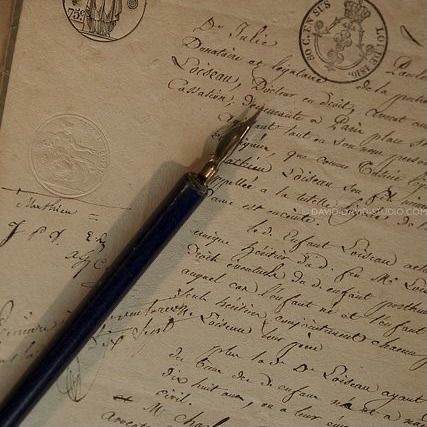


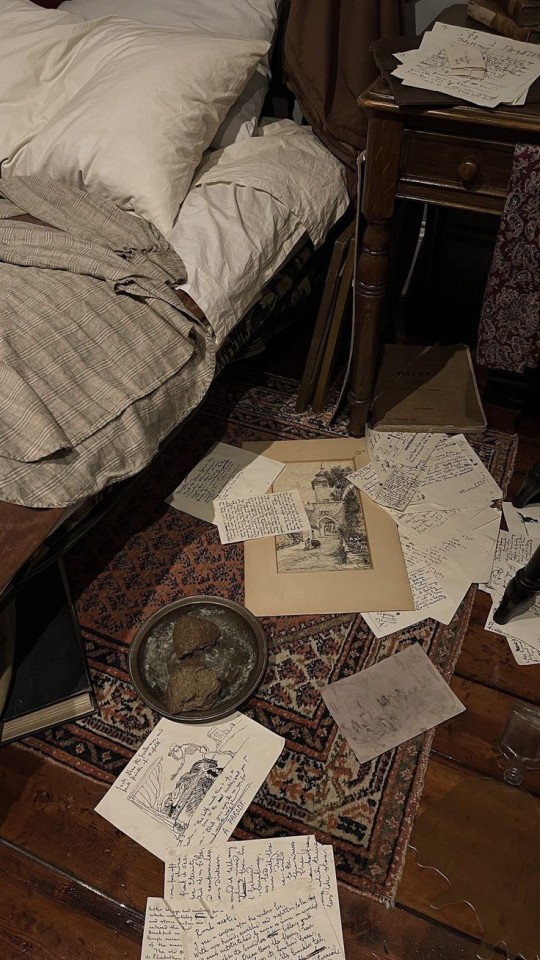


i love studying. i love writing. i love reading. i love learning languages. i love doing mathematics. i love wandering over some particular sum and trying to come up with formulas to solve it. i love physics. i love biology. i love chemistry. i love history. i love literature. i love learning.
not to achieve the perfect grades ever. but it just amazes me that there's so much to know and learn and write and read about in the universe. my curiosity wouldn't get enough of it.
10K notes
·
View notes
Text
I have never read a more excellent article
53K notes
·
View notes
